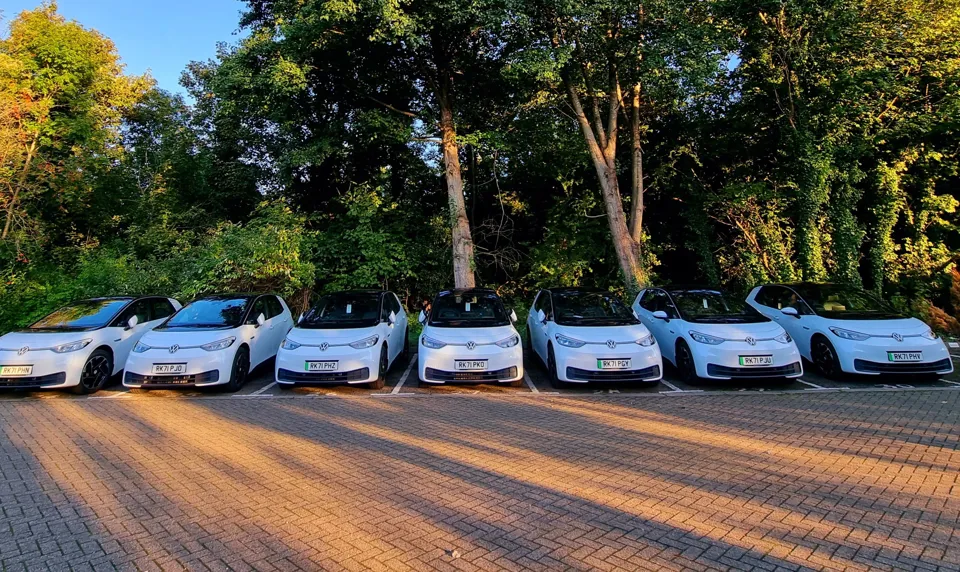Wenzel’s the Bakers has reduced its fleet costs while improving the sustainability of its operations.
Concerned over raising fleet costs, it has worked with Volkswagen Financial Services (VWFS) Fleet to transition vehicles used by 15 area managers to electric.
Ross Robins, operations director at Wenzel’s, said: “Sustainability is a top priority for us. However, with rising costs affecting almost every business, we also wanted to understand how the transition to EVs could help to drive down our operational costs.”
He continued: “As a business, we were initially apprehensive about taking the step to electric. For example, a lot of our area managers live remotely, so we had to be certain about charging access that would enable them to continue to undertake large daily mileages to visit the stores.”
Following a full fleet analysis, VWFS Fleet was able to demonstrate how the benefits of transitioning to an electric vehicle (EV) fleet would be tangible to the business.
As part of this, VWFS Fleet also assessed Wenzel’s existing vehicles, to understand whether they met the needs of the area managers.
It was decided to switch the vehicles from vans to cars, as the cars were able to better meet the fleet’s needs, while offering a more comfortable driving experience.
The switch to cars also offered a wider range of EV options to suit their drivers.
VWFS Fleet began to phase out Wenzel’s diesel and petrol vans in 2021 and replace them with a combination of electric cars, including Volkswagen ID3s, Teslas, Audi A1s and other Volkswagen electric models.
“Although the business was on board with the benefits of EVs for our fleet, we also needed to ensure our area managers felt comfortable with the transition,” explained Robins.
“We conducted a series of team engagement sessions, but we knew the only way to get our drivers completely on board was to enable them to experience the vehicles for themselves.
“Initially, we ordered six Volkswagen ID3s, so the area managers could see how the EVs performed in practice. Since then, we haven’t looked back.
“Not only do the ID3s offer more comfortable driving and ample range, with drivers only needing to top up every three to four days, but they’ve also brought significant cost savings.”
For the business, fuel costs have decreased dramatically, as well as Class 1A NI contributions, he says.
“Additionally, with many of our stores located in and around London, we have also seen a significant reduction in expenses associated with entering low emissions zones,” he added.
“Our area managers have also benefited from reduced expenses, as the EV’s associated Benefit-in-Kind (BIK) payments are significantly lower.”
To alleviate any charging anxieties, Wenzel’s also installed home chargepoints for all area managers free of charge and installed workplace charging at several of its central stores, so drivers could easily top up when visiting.
Robins said: “Our transition to EVs has been a resounding success. Our daily fleet operational costs have been slashed and our carbon footprint reduced.”





















Login to comment
Comments
No comments have been made yet.